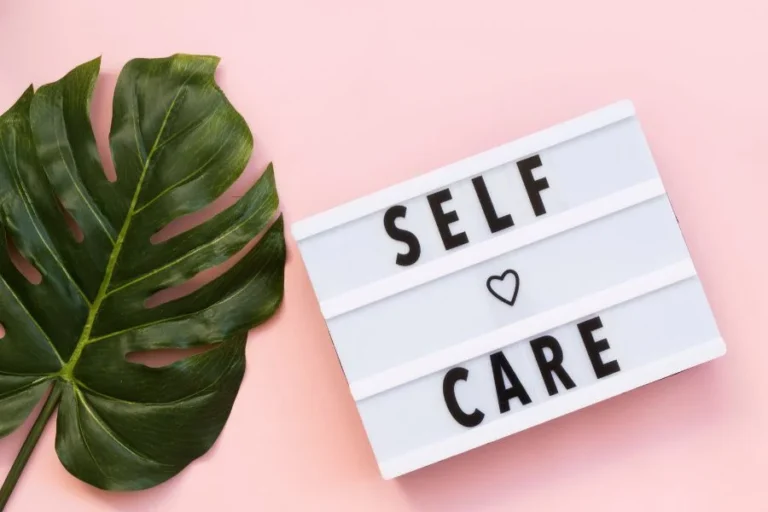Have you ever asked yourself if you can tell if she is not a virgin? Find out the secret clues and obtain the answers that you want! Read this article to learn the hints that will tell you how experienced she is so that you are well-armed when relating with women. Do not despair; you will soon get empowered and informed to recognize those signs and learn more about them.
Table of Contents
15 Signs She Is Not A Virgin
1. Confidence in Sexual Conversations
- Speaking confidently could be learned from prior experience, but it also may be a result of reading or gaining knowledge about sexual issues.
- The level of confidence when discussing matters concerning sexual issues depends on the level of comfort with the problem and may be related to the level of experience.
Example: If she can speak about sexual practices, various methods of contraception, or the effects of sexual relations on a couple without embarrassment, it may mean she is familiar with them.
2. Comfort with Sexual Topics
- Sexual comfort is defined as a person’s ability to talk about sex without feeling embarrassed about the topics discussed.
- This might be due to prior encounters or because the participants are not shy about talking about such issues.
Example: Just like how dating icks can reveal early red flags in relationships if she easily talks about sexual fantasies, describe intimate moments, or make jokes about sexual events. It proves that she is comfortable with such conversations.
3. Understanding of Sexual Health
A deep understanding of sexual health involves knowledge about:
- Preventing STIs
- Exploring the various ways of contraception
- Understanding the necessity of periodic health examinations.
- This might be by experience, through learned lessons, or a combination of both experience and learning.
Example: For instance, she could narrate how various methods of contraception work, how to use protections, or describe signs of typical STDs and how to prevent them.
4. Body Language

- Signs of affection and feelings of being close, therefore, relate to feelings of ease with touch, closeness, and contact.
- However, one cannot determine that a person is sexually experienced based on their body language; however, a person who freely demonstrates affection is likely to have intimate interactions in the past.
Example: She may often seek or like touching the partners’ bodies, hugging, or holding hands, and her body language is very calm and relaxed during these interactions.
5. Knowledge of Sex Toys or Products
- Sex toys and product awareness entail the realization of their employment, forms, and functions in enhancing sexual pleasure.
- Such exposure comes through personal usage or through being informed by others who have used them.
Example: She may discuss a particular type of vibrator or lube and explain how such products and others can be useful or how she has found particular brands effective. Being aware of certain sexual preferences or product knowledge could also serve as a yellow flag in relationships, indicating deeper comfort or previous experience
6. Past Relationships
- Asking her questions concerning previous romantic relationships can prove helpful.
- But even if she talks about past relationships, it doesn’t mean she is a sexual person or she has experienced it.
Example: She might tell some stories about prior lovers, how the relationships were developing, and what kind of physical contact was possible, which can be indirectly informative about her past.
The emotional stages of past relationships can reveal signs she is not a virgin, as they may provide insight into her personal boundaries or comfort level.
7. Ease with Physical Intimacy
- Comfort with physical touch means that she is comfortable with any form of physical contact and can freely express herself physically.
- This ease can point to a level of experience or an individual’s familiarity with touch.
- That expresses how comfortable she is in the area of affectionate touch.
Example: If she often initiates or responds positively to physical contact such as cuddling, leaning her head on your shoulder, or hand-holding, it is probable that she understands the use of such physical contact to create bonds.
8. Sexual Preferences
- Hence, clear sexual preferences refer to knowing what she likes or does not like in sexual situations.
- This may stem from actively seeking to discover and learn about herself as a woman and what she wants and does not want.
- It shows a willingness to talk and assert what she wants.
Example: She may state what specific things she liked, for instance, particular sexual acts and positions, and how one should get close to her. Such clear preference also suggests that she has a good understanding of her sexual self and how she wants to be approached.
9. Comfort with Intimate Apparel

- Comfort with intimate apparel may be attributed to knowledge of the types of clothing meant for intimacy and confidence in the specific type with which they are comfortable.
- This may include a knowledge of lingerie and the ability to select such garments without embarrassment.
Example: She might own different types of lingerie and freely talk about them, look relaxed, and even be proud of her assets. She could also state the type of styles that she prefers or how she feels about using them, which would show that she has some level of understanding of how to use intimate apparel to enhance intimate experiences.
10. Self-Care Routines
- Sexual self-care practices refer to the regular activities and behaviors that one undertakes in order to promote sexual health.
- This may imply compliance with medical appointments or utilization of appropriate hygiene products for sexual health purposes.
Example: She could discuss her routine check-up with the gynecologist or give examples of the feminine products she uses. This is proactive in maintaining her sexual health and depicts awareness of its significance.
11. Open Discussions About Sexual Experiences
- Talking about sexual experience entails expressing or narrating stories or even ideas about sexual experience.
- It can also mean she is familiar with the topic or comfortable talking about her previous or present experiences of intimacy.
Example: She could reveal information about previous relationships and how these experiences affected her perception of relationships. This openness can indicate a degree of awareness and normality regarding the sharing of intimate issues.
12. Reaction to Sexual Content
- Her response to sexual content in media can help in gauging her attitude towards the topic.
- This is evident in how she handles scenes that have erotic content or whether she quickly engages in discussions with sexual content.
Example: If she gets interested, laughs, or takes a casual approach while watching a movie containing explicit scenes or during sexual topics, it might mean that she knows a lot about it.
13. Knowledge of Safe Sex Practices
- Safe sex involves awareness of how to avoid contracting STIs and pregnancies, as well as promoting sexual health.
- Such knowledge may include informal experiences and formal education regarding sexual health.
Example: She may talk about how contraceptives work or how one needs to use condoms. This understanding shows that one is informed when it comes to sexual health and safety.
14. Comfort with Sexual Communication
- Being comfortable expressing and discussing personal preferences and limits is a prerequisite for effective communication regarding sexual wants and boundaries.
- It also shows that the other person understands the value of dialogue in sexual interactions.
Example: she can explain how she prefers to talk about her sexual needs or express her desires and boundaries in an intimate setting. This suggests a sensible strategy for preserving polite, honest sexual conversation.
15. Historical Dating Patterns
- The number and type of relationships she has had in the past can indirectly deduce her previous experience.
- This involves questioning the nature and progression of these relationships and can provide information on the level of intimacy she has.
Example: She can say she was involved in a couple of very significant relationships and explain how and when intimacy was introduced. This can help to get an idea about her experience in the sphere of intimate relationships.
Related Reading: How Cheaters Hide Their Tracks: 10 weird ways
How to Check If a Girl is Virgin without asking her
Psychological signs of a virgin girl
1. High Level of Anxiousness About Sexual Matters

- A virgin may blush or feel awkward when the topic of sex comes up in a conversation.
- The possibility of being underestimated because of their inexperience can cause extra stress.
- They may spend too much time thinking about how they should act or respond in sexual situations.
- They could avoid discussing sexual matters to ensure that they do not feel awkward or develop feelings of shame.
Example: Sarah appears uncomfortable every time her friends start talking about their sexual activities. Instead, she squirms, moves the conversation rapidly to another topic, or attempts to downplay the subject with humor. Her anxiety increases when the discussion turns to precise episodes or circumstances of sexual contact and decreases when the debate is of a general nature.
2. Limited Knowledge About Sexual Health
- A virgin might not know that there are various methods of birth control and their functioning.
- They may lack adequate information about sexually transmitted diseases and how they can be prevented, among others.
- Their knowledge of sexual anatomy and physiology might be limited or basic.
- They may lack adequate knowledge about consent in sexual matters and personal space.
Example: Sophia is confused about types of contraception, their classification as hormonal and barrier methods, or how these methods work. Her lack of interaction with different measures aimed at preventing the spread of STIs is apparent when she seems to be shocked that there are so many ways of being tested.
3. Conservative Attitudes Toward Sexuality
- It could include thinking that sex should be restricted to marriage or any committed relationship.
- A virgin could shy away or feel uneasy when it comes to issues to do with sexual liberation or casual sex.
- They may have a specific perception about what is proper or acceptable conduct in sexual relations.
- Their opinion might be aligned with religious or cultural beliefs regarding sexual matters.
Example: Emily often says that, in her opinion, sex is holy and should only be practiced in marriage between two lovers. She becomes uncomfortable with friends who discuss casual encounters or sexual experimentation and stresses the need always to be committed to a partner.
Related Reading: My Wife Never Initiates Intimacy: 7 Solutions That Work
4. Increased Concern About Personal Safety
- A virgin might have concerns about their safety during touching or intimacy.
- It also means that they know their limits and rules and are very explicit about them, and others should not cross them.
- They may also avoid certain situations and or events they consider to be harmful or unsafe in a romantic setting.
- They usually possess sound knowledge and assertiveness regarding consent in any sexual context.
Example: While going on a date, Lisa becomes uncomfortable when her dating partner attempts to sit close to her. She needs to talk about their limits and precautions first of all and stresses that she only agrees to perform sexual activities if she is willing to.
5. Discomfort in Intimate Settings

- They might experience shyness or embarrassment when a person is physically touching or being affectionate.
- They might have issues with how to show or accept affection in intimate situations.
- They lack confidence in how to act and respond when in a romantic setting.
- Their postures might depict signs of nervousness, like drooping their hands or avoiding eye contact.
Example: Alex gets uncomfortable when she is on a date, and the partner attempts to hold her hand or make physical contact. She looks puzzled when people display affection towards her; whenever someone tries to embrace her or hold her hand, she moves back slightly or turns away her face, thereby avoiding direct eye contact, which may be interpreted as signs of discomfort.
Related Reading: 14 Signs He’s Obsessed with You in a Good Way – True Love!
6. Avoidance of Sexual Topics
- They might constantly change the subject when sexual issues are being discussed or mentioned.
- They may avoid or feel uncomfortable getting sexual content like sexual scenes in movies or Web series.
- Instead, they frequently opt-out or engage in low-intensity communication about sexual topics with friends.
- They may abruptly switch topics when the conversation heads towards anything sexual.
Example: Whenever Jane’s friends are discussing recent intimate experiences or sexual scenes in movies, she shifts the conversation to topics like the latest news or interests. She becomes uncomfortable whenever the discussion turns sexual and changes the subject by any means possible.
How to know if a girl is a virgin by body language
1. Nervousness in Physical Interaction
- They may frequently change their stance, adjust their clothing, or display restless hand movements.
- They might move their bodies in an agitated manner or as if they are even paralyzed and unable to relax.
- They may avoid physical contact or appear uncomfortable during touch, such as hugs or handshakes.
2. Limited Eye Contact

- They might often turn their head or Try to avoid direct eye contact with the other person during discussions.
- They may shift their eyes away or gaze at unrelated objects to avoid making eye contact.
- Excessive blinking or eye movements that indicate nervousness also mean a loss of confidence.
3. Reserved Body Posture
- They may fold their arms or keep their hands close, making their body language look protective.
- Their bodies might be turned in a different direction from other people’s, suggesting that the person wants to be physically distant.
- They may display little mobility, remain passive, or avoid any physical contact.
4. Overly Cautious Movements
- They may handshake with hesitation, which expresses the confusion of the person about physical contact.
- Their movements can be – cautious, for example, slowly placing hands or trying not to make gestures.
- They might appear concerned with their movements or how others see them, which can seem awkward.
5. Reaction to Intimate Conversations
- They may rub their hands, constantly change their posture, or exhibit other signs of nervousness.
- They could avoid answering intimate questions by providing ambiguous or non-committal responses.
- They might also have poor posture, shifting eyes, or a forced smile as a result of stress or discomfort.
Myths About How to Tell If a Girl Is a Virgin

Here’s a brief overview of common myths about determining if a girl is a virgin:
1. The Hymen Test
- Myth: The state of the hymen is an accurate sign of virginity.
- Reality: The hymen can become stretched or torn by various actions, including exercise and tampon use. It does not necessarily indicate whether a woman is a virgin or not.
2. Physical Appearance
- Myth: Some physical signs, like a tightness or looseness of the vagina, can reveal virginity.
- Reality: The tightness of the vagina is different in every woman and depends on heredity and age. Any physical sign cannot determine virginity.
3. Pain During Intercourse
- Myth: If a girl is not a virgin, she will not feel any discomfort during her first intercourse.
- Reality: It should be noted that pain during intercourse is possible for multiple reasons regardless of virginity status and may include anxiety, lack of lubrication, and medical conditions.
4. Medical Exams
- Myth: Virginity can be confirmed through a medical examination.
- Reality: It is also important to note that there is no single medical examination that can conclusively prove or disprove virginity. Virginity is a personal and subjective concept rather than a medical or scientific phenomenon.
5. Judgment Based on Appearance
- Myth: Interpreting someone’s virginity from how they dress or what they look like.
- Reality: Physical attractiveness cannot be a measure of being a virgin. It is an internal and personal matter and thus does not depend on any external influences.
Important Considerations
- Privacy and Respect: When discussing these topics, it is vital always to respect the subject’s right to privacy. These signs can lead one astray, and they should not be used to make any conclusion about someone’s sexual history.
- Context Matters: There is no one-size-fits-all approach to these signs, as they may differ from person to person due to differences in experiences, culture, and other factors.
- Avoid Stereotyping: It is important not to jump to conclusions from these signs, as they are not conclusive evidence of a person’s sexual past.
Key Takeaways
- Confidence in Sexual Conversations: Ease when it comes to addressing sexual health and other related issues may show a level of acquaintance or experience.
- Body Language: The manner in which physical touch is conducted can also indicate comfort with intimacy through having relaxed and open body language.
- Understanding Sexual Health: Awareness of contraception, STI protection, and sexual body parts can imply experience or literacy.
- Past Relationships: Information about previous sexual partners and activity can provide secondary information about her sexual past.
- Sexual Preferences: Expressing sexual likes and dislikes mostly comes from discovering one’s self.
- Comfort with Intimate Apparel: Comfort with lingerie and intimate apparel also suggests experience.
- Psychological Signs: Elevated concern with sexuality, as well as a lack of sexual information, may be indicators of virginity.
- Myth-Busting: Virginity can, therefore, not be determined by the hymen, physical appearance, or medical exams. Privacy and respect are the highest virtues.
Pro Tip From Basics of Psychology
Instead of being obsessed with so-called signs, practice healthy, non-toxic communication patterns in your relationships. Do not bottle up any feelings and emotions, and ensure that your partner does the same. This approach helps to build a more trusting and healthier relationship, which makes discussions about intimacy less awkward and more productive for both partners.













